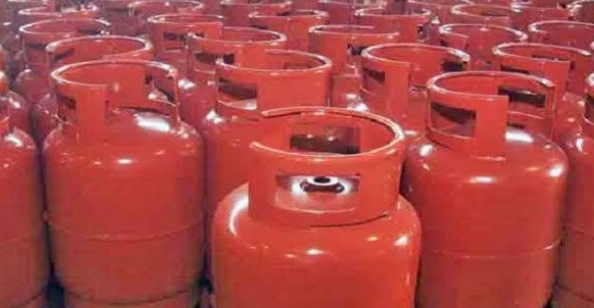Nigeria Bureau of Statistics Announces Price of Cooking-gas Rose 44.6% in One-year
According to the NBS Liquefied Petroleum Gas (Cooking Gas) Price Watch for December 2024, the average retail price for refilling a 5kg Cylinder increased from N4,962.87 in December 2023 to N7,177.27 in December 2024, in a year-on-year comparison.
On a month-on-month basis, the price for refilling a 5kg Cylinder rose N7,088.16 recorded in November 2024, reflecting a 1.26 % increase.
The report noted that Taraba recorded the highest average price for refilling a 5kg Cylinder of Cooking Gas with N8,074.41, followed by Lagos with N7,910.71, and Benue with N7,900.00.
Conversely, Delta recorded the lowest price with N6,455.00, followed by Ondo and Zamfara with N6,683.33 and N6,778.57 respectively.
The NBS also noted the average retail price for refilling a 12.5kg Cylinder of the LPD (Cooking Gas), reporting that the price rose by 50.08% from N11,510.16 in December 2023 to N17,274.16 in December 2024.
On a month-on-month basis, the price of refilling a 12kg cylinder decreased by 0.05% from N17,283.58 in November 2024.
Taraba also recorded the highest average retail price for the refilling of a 12.5kg cylinder at N20,290.75 followed by Yobe at N19,000.00 and Rivers at N18,710.94.
On the other hand, the lowest average price was recorded in Kebbi at N15,733.33, followed by Nasarawa and Kwara at N15,875.00 and N16,109.38 respectively.
In its analysis of the prices based on geopolitical zones, the NBS noted that the North-East recorded the highest average retail price for refilling a 12.5kg cylinder at N18,173.90, followed by the South-West at N17,544.26.
The North-Central recorded the lowest price at N16,482.47, in North-West zone, it was N16,959.47, in the South-East N17,100.94 and in the South-South it was N17,539.44
In its 2024 Nigeria Residential Energy Demand-Side Survey (NREDSS), the NBS revealed that only 19.4% of households in Nigeria use Liquefied Petroleum Gas (LPG) for domestic, agricultural, commercial, cultural, or religious purposes. This reflects a wide gap in the ability of Nigerians to use clean energy for cooking.
On November 1, 2024, the Federal Government banned the export of cooking gas in an attempt to stabilize prices and increase availability. It is left to be seen if the ban will achieve its goal of reducing the burden of the high costs of cooking gas on Nigerians.

